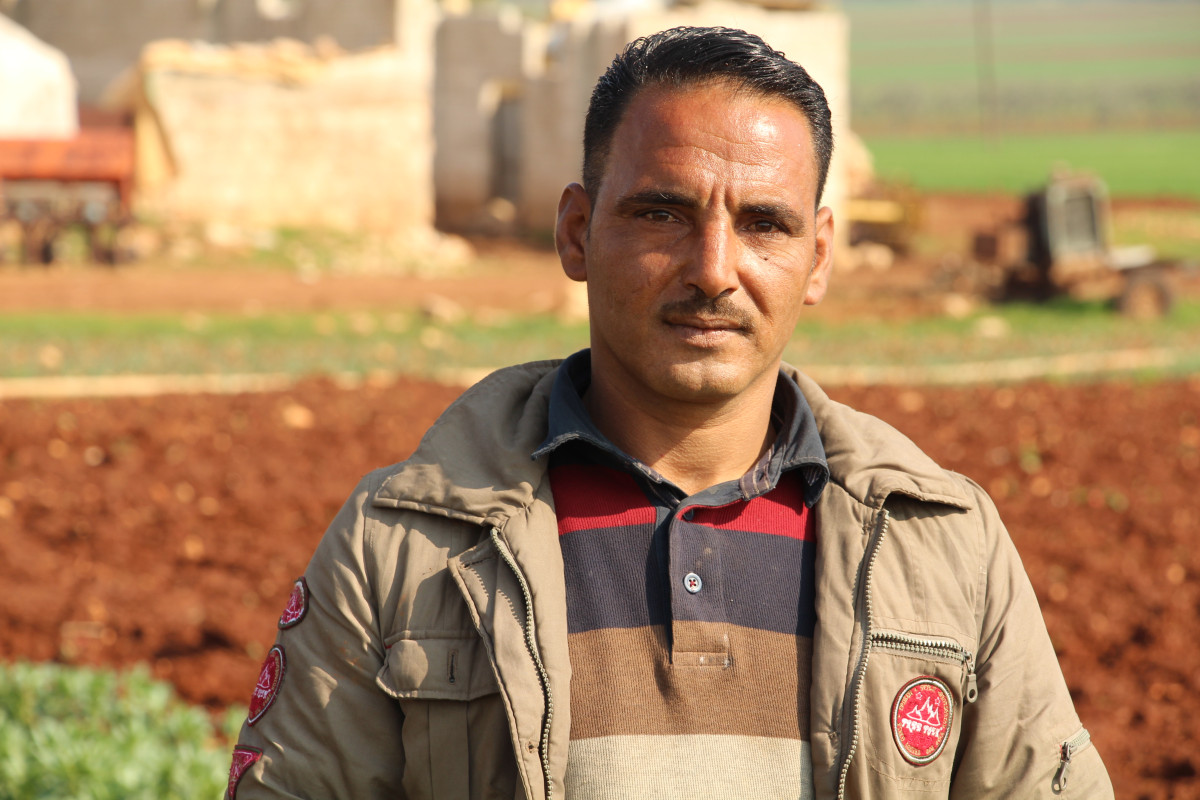Seeds, irrigation systems, and relief. How PIN supports vulnerable farmers in Syria
Published: Mar 28, 2022 Reading time: 3 minutes Share: Share an articleBilal worked in a shop selling garden decorations in Aleppo. War forced Bilal and his family to leave Aleppo. However, the war did not stymie Bilal's determination to survive and care for his family. Despite the lack of job opportunities in war-torn Syria, Bilal works hard to ensure living conditions for his children. To provide for his children, Bilal began farming, and People In Need has supported him in his efforts.

"I am originally from a farmers' family, and I used to help my father. I can now grow any crops and even help my neighbors cultivate their lands," said Bilal, who has a small plot of land where he grows corps. This plot helps him provide for his family and to cover their living expenses. "I also do daily work whenever I find the opportunity. I do not completely rely on farming for a living because my land is small. I work on my neighbors' farms. I take care of their corps and get a daily wage," said Bilal.
Farming was less costly in the past, and everything one needed was more abundant. Bilal, explaining how farmers in Syria used to profit from farming, notes that "without support from People in Need, I would not have been able to buy seeds or cultivate my land".
He further notes that "today, profit from farming is not enough to purchase pesticides or fertilizers. It is only enough to help me secure food for my family". Farmers are now relying on winter crops. This is because Syrian families have higher living costs and fewer work opportunities in winter.
In the beginning, PIN's team surveyed Bilal's field and the soil conditions. Bilal notes that "first, PIN gave me vouchers for seeds and fertilizers, and I bought lettuce, onion, bean, and cress seeds. Then I got vouchers for a water tank and a drip irrigation system". This support brought Bilal significant relief insofar as he can be sure he will be able to feed his children and his family. "Without this support, I would not have been able to do this. I would plant one crop like beans if a relative lent me the seeds. Farming costs are high," said Bilal, proudly showing us decorations from his crops. "I did this decoration with the plants to thank PIN for their support," he said.
"I just hope that everyone can go back to their homes one day"
Bilal's family is now living as happily as life in war-torn Syria allows; however, we must remember that they went through grievous moments just two years ago.
"I hope it never happens again. It was in February 2020, and it was tragic. I still feel overwhelmed whenever I think about those days, and I still clearly see the image of my kids from that time," he said. One day he had to take his family and flee. He could not anticipate it and did not have time to pack. That is what the war looks like. Suddenly, people must flee their homes, find uncertainty and lose everything in one moment.
Bilal tried to keep his family safe, and since he did not have a car, he arranged transportation with his brother and neighbor.
"There was heavy shelling in the village, and the situation was tragic. We had to run for our lives, and it felt like doomsday. I hope no one ever has such an experience," said Bilal.
Like almost every person we talk to in Syria, Bilal has the only desire: "I cannot expect the future. However, I hope circumstances get better for all Syrians in the future, and everyone goes back to their homes."
Thank you to the USAID’s Bureau for Humanitarian Assistance (BHA) for funding these activities and providing a dignified way for people in Syria to be self-sufficient and get back on their feet.



